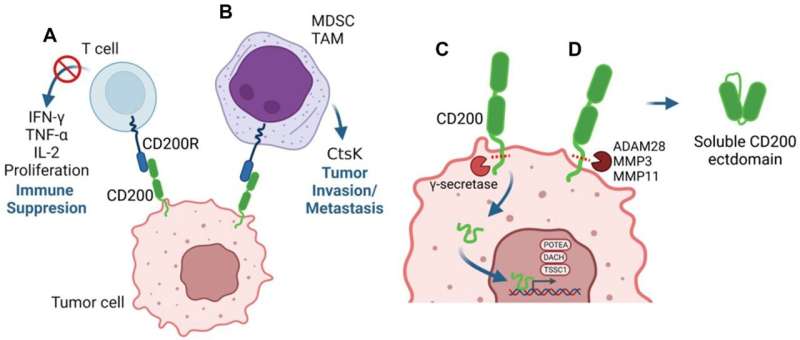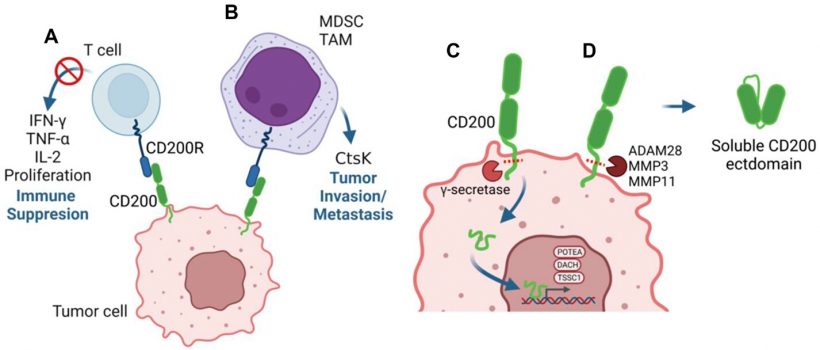
A new research perspective titled “The immunoregulatory protein CD200 as a potentially lucrative yet elusive target for cancer therapy” has been published in Oncotarget.
CD200 is an immunoregulatory cell surface ligand with proven pro-tumorigenic credentials due to its ability to suppress CD200 receptor (CD200R)-expressing anti-tumor immune function. This definitive role for the CD200-CD200R axis in regulating an immunosuppressive tumor microenvironment has garnered increasing interest in CD200 as a candidate target for immune checkpoint inhibition therapy.
However, the CD200-blocking antibody samalizumab is still in the early stages of clinical testing, and for the pro-tumorigenic role of CD200, alternative mechanisms have recently emerged that extend beyond direct suppression of anti-tumor T cell responses, and as such, may not be susceptible to CD200 antibody blockade.
In this new research perspective, researchers Anqi Shao and David M. Owens from Columbia University Irving Medical Center have summarized the current understanding of CD200 expression and function in the tumor microenvironment, as well as alternative strategies for potential neutralization of multiple CD200 mechanisms in human cancers.
“In the future, unbiased genomic- and proteomic-based approaches may help to clarify these issues by identifying tumor-specific mechanisms of CD200 expression regulation across a variety of human cancers that may be leveraged for broader therapeutic benefit,” write the researchers.
More information:
Anqi Shao et al, The immunoregulatory protein CD200 as a potentially lucrative yet elusive target for cancer therapy, Oncotarget (2023). DOI: 10.18632/oncotarget.28354
Journal information:
Oncotarget
Source: Read Full Article
